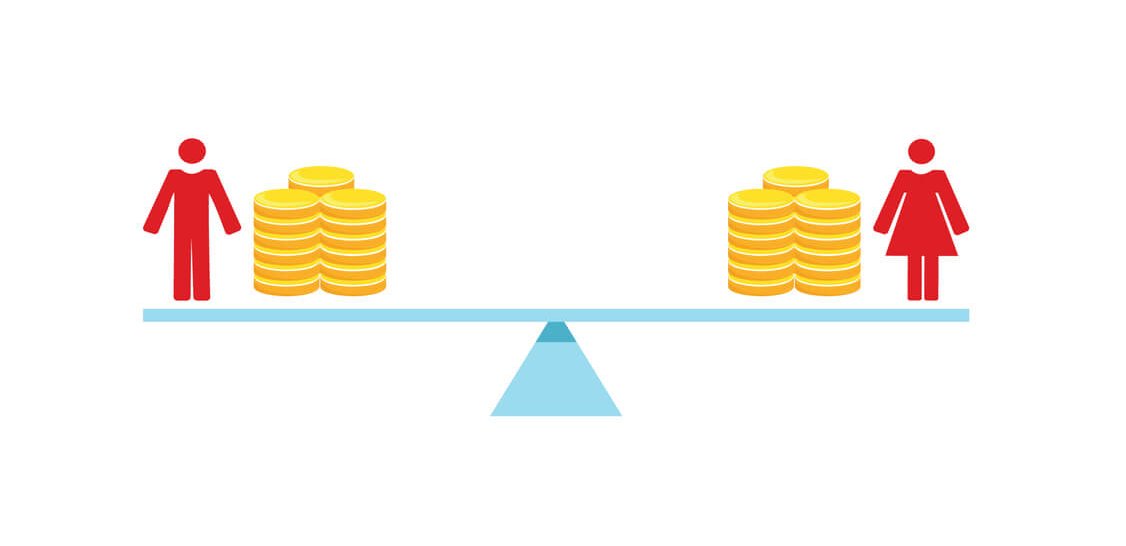In the decade of the 1970’s, I graduated from college with a degree in mathematics and certification to teach that subject. Upon graduation, I could not find a teaching position, although many of my fellow male math majors seemed to easily secure positions in a number of secondary schools that I had applied to, but was never even granted an interview.
I then considered venturing into the business community thinking my mathematics background would open doors for me. The only position I was offered was assistant clerical positions to accountants for a mere $125/week.
Even during those times, it was a meager salary. Fortunately for me, a “male” teacher resigned a teaching position in late summer, a week before school was to begin. I suppose the school district was desperate to find a replacement for a smooth opening of the school year, and I was given an interview and was hired shortly after. My teaching salary was somewhat higher than the accounting assistant position, and I was paid the same starting salary as my male colleagues who were hired that year.
Among teachers, fortunately the gender wage gap does not exist. Men and women are paid equally for similar teaching assignments. However, the attaining of administrative positions in the public schools, tend to be awarded to men, where the salaries are significantly higher.
During the three decades of my teaching career, many of my former female students, who I have remained in touch with, have often relayed exasperating stories about their assent into the ranks at their places of employment, and the disparity in wages between male and female employees that existed thirty years ago, and still exists today, unquestionably. Even as we look to the year 2020, the gender wage gap continues to endure, and needs our responsive attention.
An In-depth Investigation of the Details
In an article by Deborah Vogins, it was pointed out that the pay gap varies from state to state. In California, women earn 89.13% of men’s earnings. While in Wisconsin, where the median annual income is already less than the national average, women earn only 79.71% of men’s salaries. Ms. Vogins presents a sobering look at the gender wage gap throughout the years, and its presence in various professions. Her full article can be found here.
A Look at the Harsh Reality
In a recent article in the New York Times, Another Obstacle for Women in Science: Men Get More Federal Grant Money, March 5, 2019, Andrew Jacobs asserts, “But when it comes to the size of those awards men are often rewarded with bigger grants than women, according to a study published Tuesday in JAMA, which found that men who were the principal investigators on research projects received $41,000 more than women.” Here is a link to the full article.
With that in mind, here are 8 suggestions for women entering the work force and fighting the gender pay gap.
1. Choose a Field That You Feel Passionate About
 When searching for that dream position that you studied and labored for so diligently by obtaining a degree or some certification, don’t allow yourself to get side-tracked into accepting a lesser paying position that does not provide you with the opportunity to perform the skills that you are more than adequately able to execute. It is essential to be in an environment that will allow you to grow and develop even more expertise.
When searching for that dream position that you studied and labored for so diligently by obtaining a degree or some certification, don’t allow yourself to get side-tracked into accepting a lesser paying position that does not provide you with the opportunity to perform the skills that you are more than adequately able to execute. It is essential to be in an environment that will allow you to grow and develop even more expertise.
2. Do Not Allow a Rejection to Diminish Your Determination
Often in certain technical fields, especially in the math and sciences, men have historically dominated most of the positions. Attitudes have been changing, but all social change is slow and sometimes you will have no recourse but to accept the selections made even though you feel equally qualified. Keep searching for the institution that will value your credentials and will offer you a position.
3. Once on the Job, Do Not Get Bogged Down by Comparing Your Performance with Others
What is important, is to focus on your unique ability to do an exemplary job with whatever task is required of you. In academic fields, wages tend to be more even-handed and not so gender based. Although men do hold more sought-after administrative positions then women in most school districts and at the universities. In the corporate world, it is even truer.
4. Concentrate on Performing Your Job Well
Although you might observe others moving up the salary scale, for a multitude of reasons, and not necessarily based on competence, keep your own standards high. Eventually you will be rewarded for your superb proficiency. In the final analysis, corporate companies, educational institutions and other businesses will always seek out professionals who perform well and add positive energy to the work environment. Be that person!
5. Find a Female Mentor
 Older women who have moved up the ranks tend to possess the knowledge of how an individual’s people skills help determine a path for promotion. They can provide you with their invaluable experience. Respect their experience and garner their support for your own personal goals. There is an art to negotiating a promotion and a supportive, skillful, seasoned mentor, is your most valuable resource.
Older women who have moved up the ranks tend to possess the knowledge of how an individual’s people skills help determine a path for promotion. They can provide you with their invaluable experience. Respect their experience and garner their support for your own personal goals. There is an art to negotiating a promotion and a supportive, skillful, seasoned mentor, is your most valuable resource.
6. Advocate for Other Female Associates
Once you begin moving up the ranks, bring other female workers with you. The only way the wage-gender-gap can be closed is if other female workers recognize the work of their peers. Do not see yourself in competition with other women, see yourself as a sponsor to endorse other women whose work is worthy of consideration.
7. Act Patiently and Deliberately
Careers do not develop overnight. If your work life is going to last for 30 or 40 years, know that it is a slow, but persistent climb. The upside is that while making this ascent in your chosen field, you will gain perspective, more knowledge of your discipline, and most importantly, wisdom. Hopefully your salary will reflect this as well. Volunteering to do certain assignments without financial remuneration might get you through a few doors, but once there, you have a right to claim compensation for your continued efforts.
8. Something to Keep in Mind
Hopefully, as women continue to assert themselves in the workplace, and especially in the voting booths, changes will occur to make the gender wage gap disappear for future generations of women aspiring to any profession they desire. Remember the women who came before you, who broke boundaries and achieved success in their chosen fields, and keep urging employers to treat you with the respect and financial earnings you so richly deserve.
Calculate your Pay Gap with the Pay Gap Calculator here.
Author: Marion Cohen







